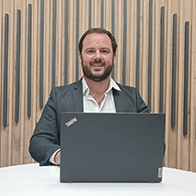

Legal chief | Trabajos Marítimos – TRAMARSA



Hernán Velando Gómez
Legal chief | Trabajos Marítimos – TRAMARSA
What has been the number one challenge that has impacted you over the past year?
The challenge with the greatest impact and complexity has been the need to keep the company’s legal applicable regulations updated. New legal standards are published every day in the Official Gazette, and they may, or may not, have an impact on organisations. Determining the applicability of legal standards requires a thorough review, which is challenging, as we also have to attend to the needs of external and internal clients. This creates a risk of lack of knowledge of possible regulatory changes that may affect the organisation.
I believe that it is necessary to develop selective search engines that, alongside AI, systematically review the total content of the Official Gazette and identify changes to the standards already identified by the companies in order to keep the legal standards matrices updated.
Looking forward, what technological advancements do you feel will impact the role of in-house legal teams in the future the most?
I believe that the greatest impact will be the implementation of artificial intelligence to search engine systems that will optimise the search and identification of legal regulations that might have an impact on organisations.
Likewise, I think is important to integrate filling systems with artificial intelligence to carry out systematic and cross searches in the documents of the organisation so that you can have a “dynamic table” that allows a comparison of legal clauses from all contracts. This will encourage more efficient management of legal risks.
What is a cause, business related or otherwise, that you care about, and why?
In the maritime and port sector, it is imperative to have a proper control of safety. Training people in safety is a prerequisite to ensuring the importance of care and self-care is internalised within the organisation, which promotes a safe environment to operate in. This is especially important because port operations have many risks and workers in this sector are exposed to them.
Finally, it is also essential to maintain and monitor all the operational and environmental licenses.
Legal affairs manager | DP World Perú